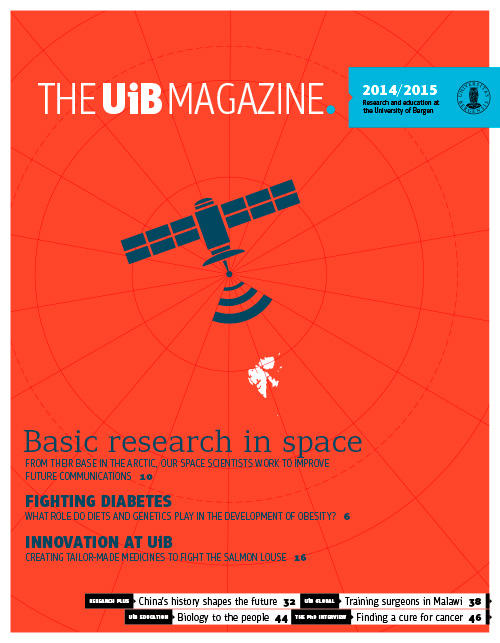To surf or to sleep? That is the question.
Taking your mobile phone, tablet or computer to bed is a bad idea if you want a good night’s sleep.

Hovedinnhold
Whether you read emails, check how many Facebook likes you’ve got or just surf the internet randomly at bedtime, this may impair sleep, according to a sleep study done by researchers at the Faculty of Psychology at the University of Bergen (UiB).
In the study, more than 500 students answered questions about their online media habits at bedtime. More than 90 per cent admitted to web surfing, watching movies or emailing at least once a week in bed before going to sleep.
“Our sleep study shows a clear connection between web surfing and insomnia, i.e. sleep problems,” says Professor Ståle Pallesen at UiB’s Faculty of Psychology. He is a member of the Bergen Group for Treatment Research at UiB.
Pallesen is co-author of a paper on the study, called “The association between use of electronic media in bed before going to sleep and insomnia symptoms, daytime sleepiness, morningness, and chronotype.” This was published in the journal Behavioral Sleep Medicine in October 2013.
Late risers stay online more
As well as being associated with insomnia, the study showed that use of online media at bedtime seems to influence other aspects of the human sleep pattern. Late risers surfed the web more and watched more movies online than early birds. People with delayed circadian rhythms spent more of their time in bed on social media compared to those with a more advanced circadian rhythm.
Although the researchers spotted a connection between use of digital media and sleep deprivation, as yet they do not have a final answer as to what causes this. But they believe that previous observations and studies do provide some suggestions.
“We know that evening light affects the biological mechanisms that delay sleep and the circadian rhythm. In addition, computer games or television shows can generate excitement and make sleep more difficult,” Pallesen says.
“It can, however, not be ruled out that insomnia and delays in sleep patterns lead to people lying awake for longer at bedtime, thus resorting to electronic media for entertainment.”
Reserve the bed for sleep and sex
Electronic devices in the bedroom serve as distractions and make it harder to sleep, according to Pallesen and his fellow researchers. He mentions accidents as a theoretical parallel, where people may relive incidents because they encounter certain emotions upon revisiting the scene of an accident.
So what to do to avoid distractions and focus on quality sleep?
“People with insomnia issues are recommended to keep the bedroom free of television sets, mobile phones, games consoles, computers and other electronic devices, says Professor Ståle Pallesen, before pointing out that the bed basically has two main uses. “The bedroom should be reserved for sex and sleep.”
Facts about the online media and sleep study:
- 532 students from the University of Bergen (UiB), Bergen University College and the Norwegian School of Economics were surveyed by researchers from UiB’s Department of Psychology about their use of electronic media and sleep habits.
Around 75 per cent of the students told the researchers that they used their mobile phone at bedtime at least once a week. - 50 per cent of the students used their computer to watch movies at bedtime at least once a week. The same number of students said that they used their computers for games and web surfing in bed.
- Every week, at bedtime the students surveyed spent 106 minutes watching movies, web surfing for 64 minutes and playing games or web surfing on their computer for 73 minutes. The average use of media is 46.6 minutes.
- A paper on the survey was recently published in the journal Behavioral Sleep Medicine. The paper was entitled “The association between use of electronic media in bed before going to sleep and insomnia symptoms, daytime sleepiness, morningness, and chronotype.”
(Translated from the Norwegian by Sverre Ole Drønen.)
This article is a longer version of an interview from the UiB Magazine 2014/2015. You can download a PDF of the full magazine or you may browse the magazine online.

